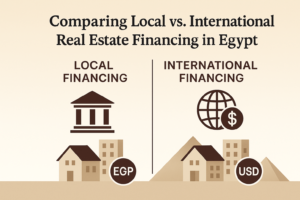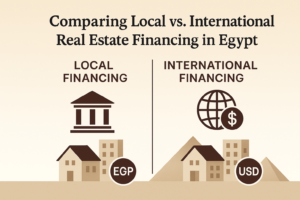Managing a property can be a rewarding yet challenging task. Whether you’re a homeowner, an investor, or own a second home, following best practices can help you maintain your property, keep tenants happy, and maximize your investment. Here are some practical tips to help you manage your property effectively.
1. Keep Your Property Clean and Well-Maintained
Regular maintenance is key to keeping your property in good condition and attracting quality tenants. Here’s what you can do:
- Routine Inspections: Regularly inspect individual units and shared spaces like stairwells, entrances, and corridors to address any issues early, such as plumbing leaks, faulty wiring, or damaged fixtures.
- Common Area Maintenance: Clean and maintain hallways, staircases, elevators, and outdoor spaces to create a pleasant living environment.
- Seasonal Maintenance Checks: Prepare for weather changes by inspecting water tanks, plumbing lines, and windows to ensure insulation and sealing are intact.
- Painting and Touch-Ups: Refresh interior and exterior walls with a new coat of paint as needed to maintain a modern and clean look, especially in high-traffic areas.
- Prompt Repairs: Handle maintenance requests quickly to keep tenants satisfied and prevent minor problems from becoming expensive fixes.
2. Set a Competitive Rental Price
Pricing your rental property correctly is one of the most important factors in attracting tenants and maintaining steady occupancy. Follow these steps to set a price that’s competitive, realistic, and profitable:
1. Research the Market:
- Compare Similar Properties: Analyze listings for apartments in your area with similar size, features, and amenities. Pay attention to unit types (1-bedroom, 2-bedroom, etc.) and any special features like balconies, modern finishes, or furnished options.
- Evaluate Neighborhood Trends: Consider how location affects demand. Proximity to schools, public transportation, shopping centers, and entertainment hubs can justify higher rents.
2. Assess Your Apartment’s Value:
- Highlight Unique Features: If your property has premium features—such as modern kitchens, secure parking, or access to shared facilities (e.g., gyms or pools)—factor those into your pricing.
- Condition and Maintenance: A well-maintained, freshly painted apartment with updated fixtures and appliances can command higher rent than outdated units.
3. Account for Expenses:
- Operating Costs: Calculate monthly expenses, including property taxes, maintenance, utilities (if included), and property management fees.
- Profit Margin: Ensure your rent covers all costs while leaving room for profit.
4. Offer Flexible Terms to Attract Tenants:
- Short-Term vs. Long-Term Leases: Cater to different tenant preferences by offering options for lease lengths, which can attract a wider pool of renters.
- Discounts for Advance Payments: Consider offering small incentives like discounts for tenants who pay several months in advance, as this can attract reliable tenants and improve cash flow.
5. Monitor and Adjust Pricing Regularly:
- Stay Competitive: Keep an eye on local market trends and adjust prices if demand shifts. Lower rates slightly to fill vacancies quickly or increase them during high-demand seasons.
- Test Pricing with Listings: Post your property at slightly different price points to gauge tenant interest and find the sweet spot.
By setting a rental price that reflects the market, highlights your apartment’s value, and aligns with your financial goals, you can attract tenants quickly while maximizing profitability.
3. Screen Tenants Carefully
Finding reliable tenants is essential for a smooth rental experience. Here’s how to screen tenants effectively:
- Background Checks: Conduct background and credit checks to ensure potential tenants have a good rental history.
- References: Ask for references from previous landlords to get an idea of the tenant’s behavior and reliability.
- Interview: Have a conversation with potential tenants to understand their needs and expectations.
4. Communicate Clearly and Regularly
Good communication with your tenants can prevent misunderstandings and build a positive relationship. Here are some tips:
- Be Accessible: Make sure tenants know how to reach you in case of emergencies or maintenance requests.
- Regular Updates: Keep tenants informed about any changes or upcoming maintenance work.
- Feedback: Encourage tenants to provide feedback and address their concerns promptly.
5. Use Technology to Your Advantage
Technology can simplify property management tasks and improve efficiency. Consider using property management software to:
- List Your Property: Showcase your property on popular listing platforms like Airbnb to reach a wider audience and attract potential renters or buyers.
- Collect Rent Online: Offer tenants the convenience of paying rent online.
- Track Maintenance Requests: Keep track of maintenance requests and ensure timely completion using apps like Airtable and FilKhedma
6. Enhance Curb Appeal
First impressions matter. Improving your property’s exterior can attract potential tenants and increase its value:
- Landscaping: Maintain a tidy lawn, trim bushes, and plant flowers.
- Exterior Cleaning: Power wash the exterior, clean windows, and repaint if necessary.
- Lighting: Ensure the property is well-lit, especially around entryways.
7. Understand Legal Responsibilities
Being aware of your legal responsibilities as a landlord is crucial. Here are some key points:
- Lease Agreements: Have a clear and comprehensive lease agreement that outlines the terms and conditions of the rental.
- Tenant Rights: Familiarize yourself with local tenant rights and ensure you comply with all regulations.
- Insurance: Have adequate insurance coverage to protect your property and investment.
Conclusion
Effective property management doesn’t have to be complicated. By following these best practices, you can maintain your property, keep your tenants happy, and maximize your investment. Whether you’re a homeowner, an investor, or own a second home, these tips will help you manage your property with confidence.
For those seeking a more hands-off approach, working with a professional property management firm or service provider can be invaluable. Their expertise ensures that your property is well-maintained, tenants are satisfied, and your investment is optimized, giving you peace of mind and more time to focus on other priorities.
Whether you’re managing one apartment or several, following these tips can help you maintain your property, attract reliable tenants, and optimize your rental income. If you need expert assistance, Consult is here to provide seamless property management solutions tailored to your needs.

















